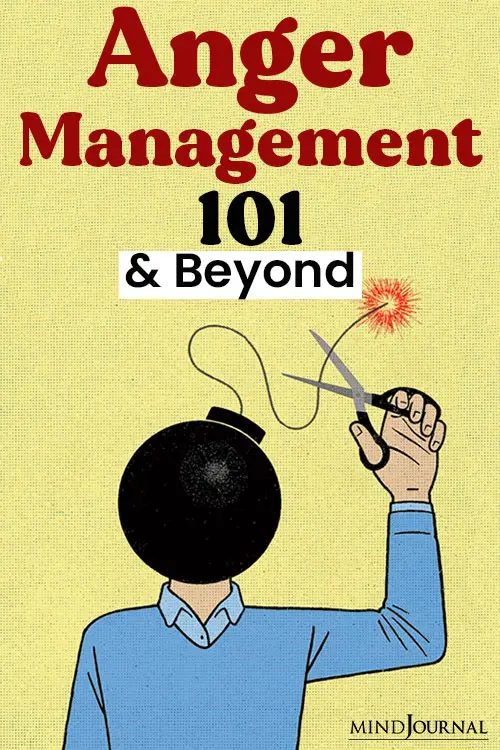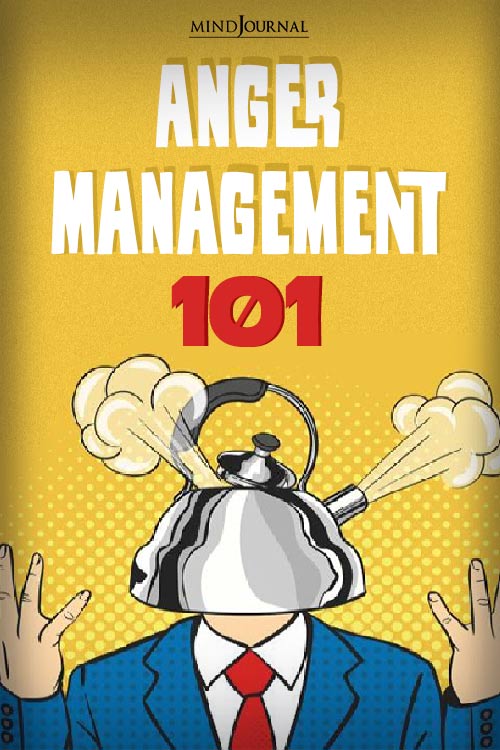Anger is such a heated emotion that can drive anyone to do some crazy things. While we all have anger, everyone expresses this emotion differently. You feel that you’re denying your emotions or you’re being somehow contained, and this leads you to act out in other ways. Anger management techniques can improve outcomes in these situations and help you improve your quality of life.
Anger, just like many other emotions, is only difficult because nobody taught us how it works and how to deal with it. In this article, you are going to learn the basics and this will not only be about anger management, today we go beyond.
Containing a fire is like classic anger management. Learning to extinguish that fire is, on the other hand, the ultimate aim of my Anger Management program. Read on to learn it yourself.
Anger doesn’t have to be a chronic problem, and while many learn to just manage it you can learn to drop it completely off your life. Not suppression, that would be useless, we’re going beyond anger management, a true bye-bye to anger and rage in your life.
Now, the key here is knowing exactly what you really want. Just like it happens with alcoholism, it will not be until you are completely determined to abandon rage forever that you will start living without anger and the impact this has on your life.
Let’s get started.
First, you need to understand that the real problem is not anger itself nor the way you express it, but the fact that you hold on to it. Your attachment to anger is the true problem, in some cases going as far as being an addiction. Nothing you cannot overcome, but similar to craving sweets for example.
Related: Anger Management: 4 Tips To Help You Manage Your Anger
This is especially difficult to observe when enraged and that’s why you must learn about your anger when not under its influence. This way you will be prepared, stop being reactive (your automatic programming) and start doing the things that will lead you to a happier life.
One last thing, though: If you believe you have no power over your anger or that you are incapable of changing, this is not the place for you.
First of all, understand that anger and rage are a burden, a burden which you decide to take on yourself. Think of it as a heavy, heavy load that suddenly is placed on your shoulders, where you decide to accept it.
Think about this for a moment, you can recognize this by thinking about your past experiences, the times when you’ve been angry. Unless you have already decided that you don’t want anger in your life, you can clearly see the mechanics of anger whenever someone (even yourself) tries to make you drop that rage.
You immediately start validating it. Immediately after the failed attempt of dropping it, you will start making excuses. You will start giving answers like: “It was them who started”, “This dumb thing is making me angry”, “I am mad because this happened”.
All of the reasons. They are reasons you give yourself to take on that heavy burden. And guess what happens next? Like any emotion, it holds a charge, a charge that must be dealt with.
The energetic charge that emotions hold is rarely ever static, it is dynamic and it pushes you from the inside.
Just as sadness urges you to cry or fear makes you want to run, anger and rage make you do things. Depending on your specific situation, those acts can be screaming, punching the wall, throwing stuff (or a tantrum), storming out of the room… you name it.
That’s the mechanics of anger, it makes you want to release it. It makes you want to drop, in some way, the burden you decided to take on your shoulders. Why?
Because you validated it in the first place!
If someone cuts you off you will proceed to get mad, tense your body, honk at the car now in front of you, yell at the driver, maybe flip him/her, and all sorts of stuff… all because?
Who cares, you can mention a thousand reasons anything from “stupid people” to “he put me at risk by doing that”.
The point is still the same: You are validating your anger and your ensuing behavior, you give yourself permission to accept the burden and with that acceptance, you also carry the obligation of releasing any energy it may carry with it.
The First Step Is To Break The Bond
My anger management is simpler than you think. The first step is to break the bond. Give your anger no validation.
If you really want to get over this, give your anger no validation because no matter what happens on the outside you have taken the decision not to accept anger. You already know all the reasons why you could accept it, but your decision is not to do it.
Related: How You Can Manage Your Anger And Never Let It Control You
Do you see how renouncing anger is crucial if you want to make any progress? Unless you truly say NO to anger and reject it you will keep validating it. But if what you truly want is peace of mind and stability then that desire will prevail and anger will have nowhere to grip you from.
Now, it’s understandable if this change is not immediate, it takes time and practice. But to help you take the first steps here is an affirmation that will keep you on track.
Whenever you feel like anger is trying to get to you, say:
“I release this anger, I choose not to take it. I choose to be a strong and stable person instead.”
Let’s make it clear: Anger cannot take place unless you decide you want it. Become responsible of your response to the situations in your life.
Whatever happens, keep in mind that your main goal is to drop the anger and stop validating it. Accept things with a shrug of shoulders and say to yourself: “Hey, whatever, that anger is something I won’t hold on to”
This is more than anger management, it is banishing anger from your life.
This doesn’t mean you should allow bad things to happen to you or others, but instead, you are just taking away the anger element, which just harms and blinds you. Act depending on your situation but leave anger to dissolve on its own. Anger needs someone to exist, if you reject it then it will be like there is no one there to “accept the package”.
If the waiter is not paying attention just assertively make sure he does. If someone cuts you off stay away from someone who doesn’t know how to drive (or probably is having an emergency). If someone is disrespectful to you, state it, and change the situation. If your S.O. doesn’t understand you, take the time to explain.
Do you see how anger is not needed for anything to work as it should? Action is necessary, not the emotion and our unhealthy release.
Until you break the bond you will observe that first, by rejecting anger, the influence it has over you will be greatly diminished. This is why I decided to revamp anger management so that you see results in your life fast.
Now, it will be normal if you still feel enraged and it is necessary to release that anger in a healthy form. Resolve to do no harm and to release only in ways that do not affect you or others.
You won’t have to feel like this forever, only until you break the attachment to anger.
Dare to go against your ego, because your ego is what provides validation to anger. If you dare to challenge the reasons it gives you and accept the things that contradict you with a detached attitude you will be taking great steps towards your happiness.
What is it that you care for most? Your health, happiness, and growth? Or your reason to be angry? The choice is yours, make no mistake. Be responsible. Whenever you get mad is because you want it that way.
With time you will stop being reactive and you will be able to solve situations instead of resorting to anger. As I mentioned above you will clearly see how this dependence on anger is like an addiction. Check out this meditation to learn the mechanics of thought and your mind.
Quite often we just wait for the slightest provocation to resort to anger. Anything that we can adapt to a reason for us to be mad (validation of anger) is used as justification to feel and behave enraged.
When anger or rage is allowed to drive our behavior we can have some pretty nasty consequences. People who don’t know how to deal with anger become aggressive or even violent and this has serious consequences both for the individual and the ones around them.
Related: How To Understand, Heal And Release Your Anger
This is why Emotional Education (and specifically anger management in this case) is absolutely essential to life in the 21st century. Good news, by reading this you just started!
When we act driven by rage or anger we are literally acting under the influence of it. Just as it would happen with DUIs this means that we are not exactly ourselves and that we surrender a little bit of control over ourselves to anger.
The road to being free from anger is easier than you think, you just need to follow through. If you use the affirmation given above and start being responsible for your response, you will be free from the unhealthy attachment to anger in very little time.
If you believe this will be helpful to others or if it helps you, don’t forget to share and like. Thanks for reading!
Written By George Alonso Originally Appeared In George Alonso










Leave a Reply
You must be logged in to post a comment.